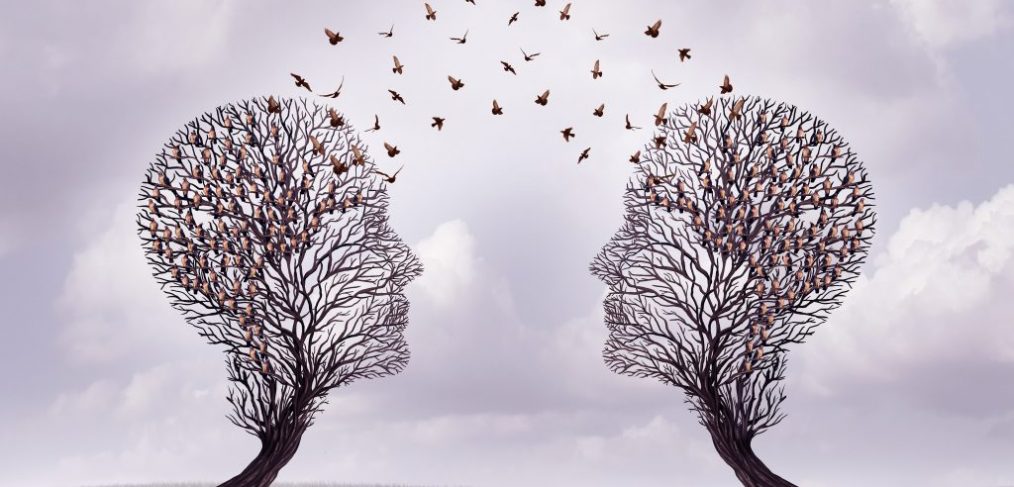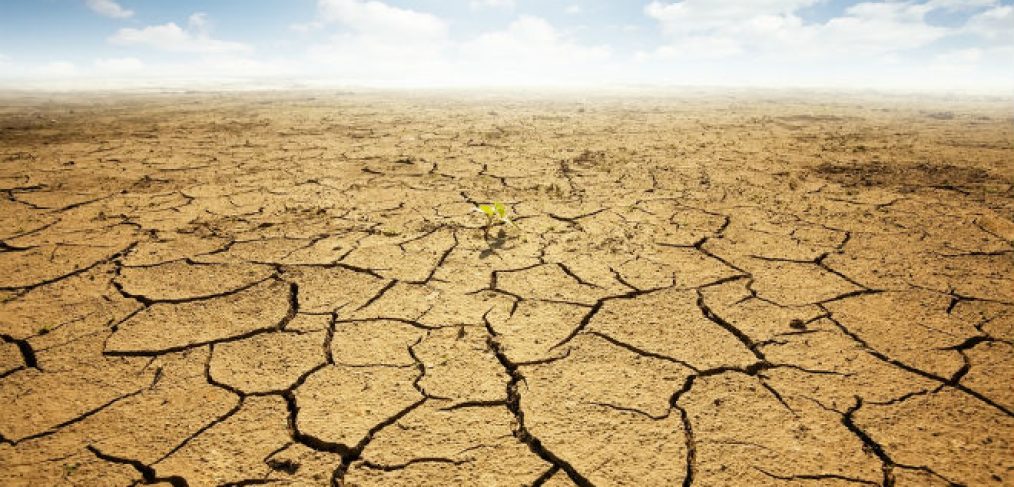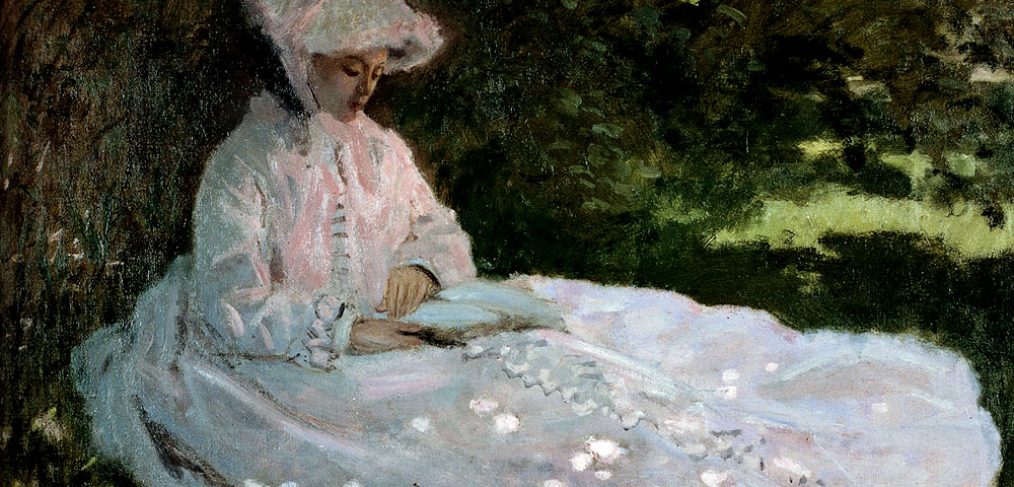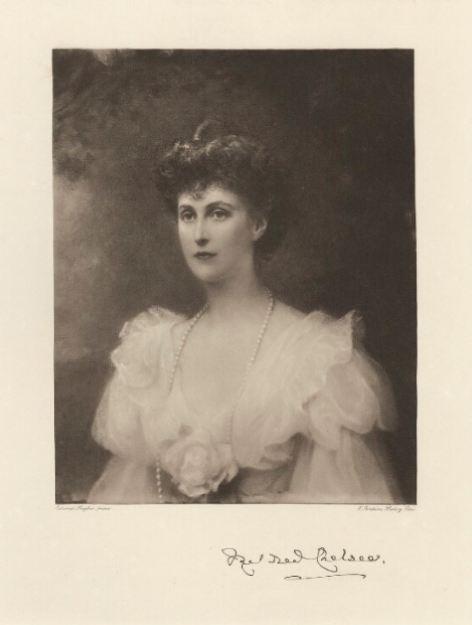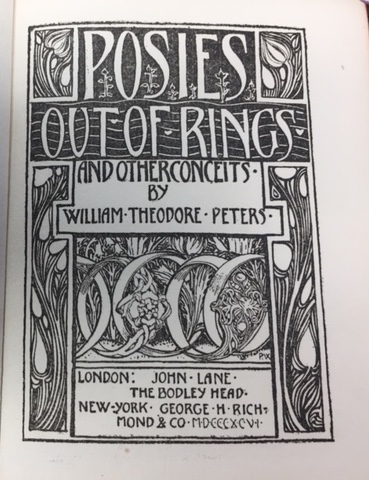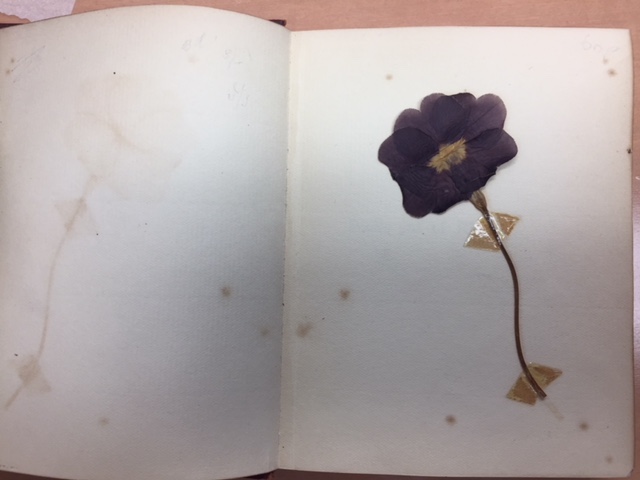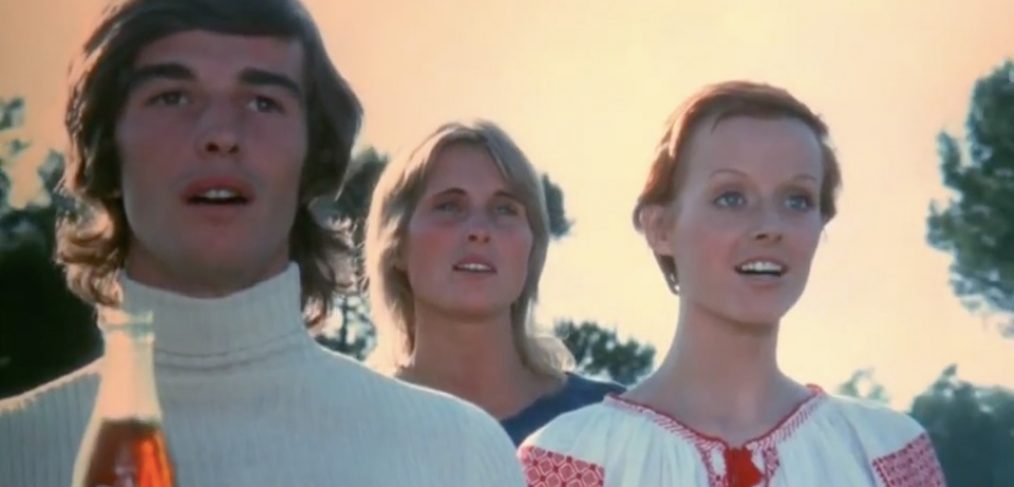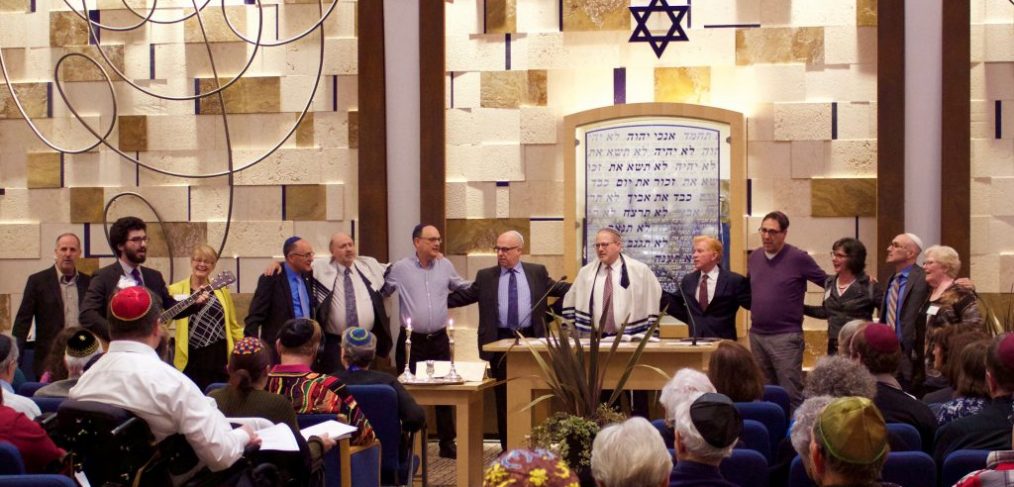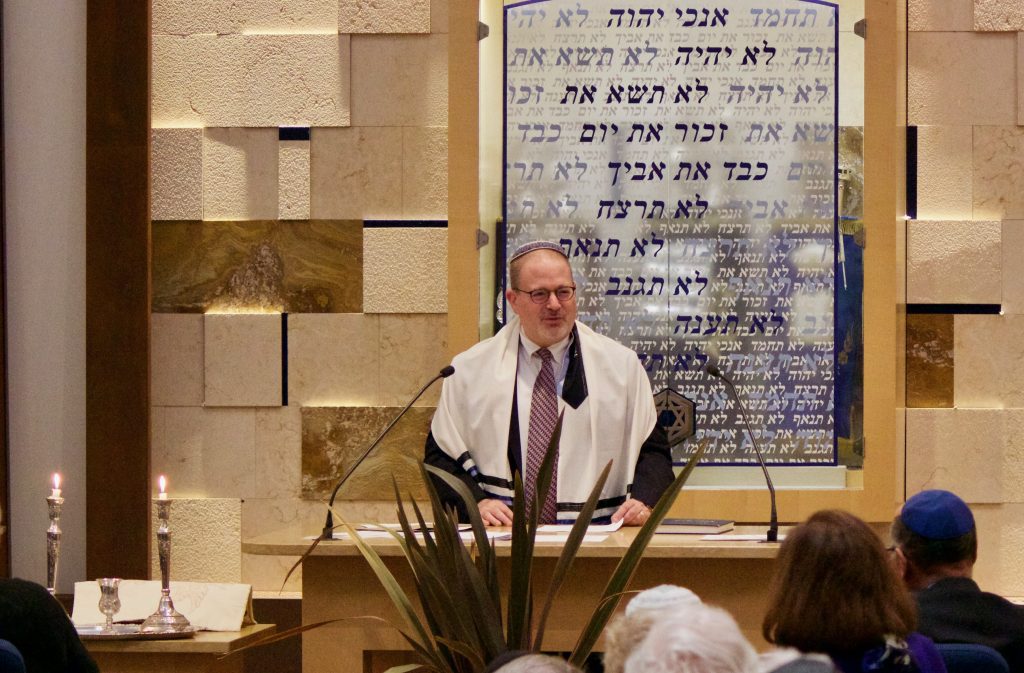Kol Nidre Sermon
Temple B’nai Tikvah
5779/2018
By Rabbi Mark Glickman
When I lived in Washington State, I used to frequent a teriyaki restaurant near the synagogue where I worked. Teriyaki places are very common there, and this one could be counted on for decent workday lunches.
One day, right after I sat down, a man and his two kids sat at the table right next to mine. His daughter looked to be about six, his son looked to be about four, and he looked to be a guy with very full hands that day. At the time, my kids were only a few years older than his, so I knew exactly what he was going through. By all appearances, it was an afternoon out with Dad, so that Mom could have some time to herself. Maybe she had some errands to do, or maybe she was going to lunch with some friends, or perhaps he was even giving her an afternoon at the spa. Regardless, Dad had several hours to fill with those two little people – maybe at the mall, at the playground, or at the movies – and of course he had to get some food into them. That, I knew, was why they were at the teriyaki place that day.
He got hold of some booster seats, plopped the kids into them, pulled out a couple of activity books, and began to study the menu. “Rachel, do you want chicken, or beef?”
“Umm…I want beef, Daddy.”
“OK, one small plate of beef for you. How about you, Joey? Chicken, or beef?”
“I want chicken,” Joey said.
“Terrific,” Dad replied. “You and I will split a plate of chicken.”
“No, Daddy. I want my own plate.”
“I know, Joey, but those plates are really big. We’ll share one, and you can have as much chicken as you want off of it, OK?”
“No, Daddy. I want my own plate, just like Rachel.”
My heart went out to the guy. I’d been there. I knew full well that ordering restaurant food for small children is a challenge similar in magnitude to that of mapping the human genome. Very few people have figured out how to do it successfully, and I was pulling for the guy.
“Joey, we’ll share a plate. It will be fine.”
“Daaaad. I want my own!” There was now a little catch in Joey’s voice – a small hint of what we might call “youthful complaint.” Joey was ratcheting things up a little bit, and things were getting interesting.
“Come on, Dad!” I thought. “You can do this. You’ve already set aside this day to be with your kids. You got them loaded into the car, you’ve started your errands – you’ve got it all together. Now, rise to the occasion my friend. The I-want-my-own-plate monster is beginning to breathe fire. Stand up to that dragon, and slay it. I’ve been there and slayed some of those dragons myself, my friend. I know what you’re going through. You can do it.”
“Joey, you’ll be able to order your own plate when you’re older and bigger. Today you’ll be sharing with me. Now take out your crayons and color in your coloring book.”
“Daaaaaad!” Joey’s voice grew louder. “I want my own chicken!!!”
“Joey, be quiet, and color in your coloring book. Everything will be fine.”
The advantage in this battle was starting to swing toward Joey. Dad was losing ground. My heart really went out to him.
“But I want my own chicken!!!” Joey yelled.
“Joey! Either you stop yelling, or I’m going to have to take you out to the car.”
“Uh-oh,” I thought. “That’s it. Dad just fell into the I’m-going-to-have-to-take-you-out-to-the-car trap. This is not looking good for him. In the history of fatherhood, very few men have ever emerged from that trap alive.”
Now, Joey shrieked even louder. “I want my own chicken!!!”
“That’s it – you’re done,” Dad said. As Joey continued to scream over the ultimate injustice of his life, Dad picked the boy up, put him under his arm surfboard style, and headed out to the car.
Rachel sat alone the table, paging through her coloring book. What she didn’t realize was that her father’s hasty exit had just activated the Father Code of Ethics. Now, it was my job to keep an eye on Rachel until her father returned. That said, she looked like she was doing fine on her own.
At one point, Rachel and I did make eye-contact. “Does your brother do that very often?” I asked.
Rachel rolled her eyes. “All the time!” she said.
“Yeah,” I told her. “That’s kinda what little brothers do. He’ll probably get better, but it might not be until you’re much older. Do you think you can hold out until then?”
“I suppose,” Rachel said, rolling her eyes again.
After just a few minutes, Dad came back, holding the hand of Joey, who walked calmly beside him, wiping his nose, and rubbing the last few tears from his cheeks. “Atta boy, Dad,” I thought. “You have reasserted control. Good job!” Again, I had been where he was and done what he was doing many times before. I knew exactly what he was going through.
Soon, the waitress came to take their order. Chirpy and enthusiastic, she turned to the kids and said, “So, what are you doing today.”
“We’re going to the hops-pital,” said Joey. “Our Mommy is there.”
“Oh…I hope she’s not too sick,” said that waitress, trying to keep things happy.
“Well,” said the father, “actually, it’s cancer. Stage Four.”
“Oh,” said the waitress. “Sorry to hear that.” There was an awkward pause. “Well…what would you like for lunch, then?”
It turns out, that I was wrong about this man the whole time. I only thought I knew what he was going through. In my mind, I had painted a detailed picture of this man’s life – one that, coincidentally, looked a lot like mine. In reality, however, his life was very different than mine, and the lives of his kids were very different than the lives of my own. He was dealing with a dying wife. His kids were likely facing the prospect of living much of their remaining childhoods – not to mention much of their remaining lives – without their mother. My assumptions, it turns out, were nothing but smug projections of my own life onto theirs. Sitting there eating Japanese food with his kids, that man looked lonely. I hoped he had a community that could give him support. How could I have gotten him so wrong?
Fortunately, in this case I had kept those assumptions to myself and didn’t act on them. But how often do our assumptions – our presumptions – seep into the way we interact with people? I invite you to think about it in your own life. Most of us assume things about others all the time. Someone snubs you at a party, and you think, “She’s still holding a grudge against me for that time I stood her up at dinner.” Your boss calls you three times to remind you to send out that email, and you think, “He’s such a control freak.” Someone else talks your ear off about something that doesn’t make any sense, and you think “He’s just a nut.”
All of those assumptions, of course, might be true. But, as I learned so well with that guy in the teriyaki place, they might not. Instead, there might be far more to the story than you ever dreamed of. She might have snubbed you at the party because that day she had just learned her job was in jeopardy, and her mind was simply elsewhere – not focused on the niceties of party talk. Your boss might be reminding you to send that email because that email is important to the completion of a huge project in ways you’re simply not privy to. And that other guy might be jabbering on because he’s all alone at home, talking with you is the first meaningful moment of human contact he’s had all day, and he doesn’t want to let you go because he’s afraid of the loneliness that will flood in when he does.
The reality is that we never know the totality of another human being’s story. What we see when we look at the person standing before us is only a tiny portion of the person who they are – the proverbial tip of their “otherness-iceberg.” Think about that person you said hello to on your way into services tonight. How much do you really know about them? Do you really know what it is that makes that person tick? Do you really know what happened to them before you saw them today? And if you do, do you think you really have a full sense of how those events resonated with them? You might be able to guess as to what those events would have meant for you, but that person is not you – what happens to them means something different than the same events do when they happen to you.
It’s even true of the people we know and love most. We might know a lot about our spouses and our siblings and our kids and our close, close friends, but do we really know it all? Of course we don’t. That’s why even good friends have arguments sometimes; that’s why being a parent can be so unpredictable. That’s why marriage is often so very complicated.
Of course, the fact that we don’t know what motivates other people shouldn’t let them off the hook when they misbehave. Nasty behavior is nasty behavior, and we should never tolerate it. But understanding the complexity and the otherness of the people with whom we interact can add compassion to the equation. No, it was not OK for that cashier to snap at you the way he did, but maybe the fact that you don’t know what his day was like before your encounter with him can allow you to give him the benefit of the doubt. Understanding and empathy humanize other people, and we need such understanding and empathy if we are ever to bridge the vast chasms that separate us.
This day – Yom Kippur – is in part about healing broken relationships. It invites us to look at what we can do to repair the rifts that have opened up between ourselves and other people. As we look at these fissures, I encourage you to remember that our tradition reminds us that God created each of unique – profoundly so. Each person you encounter in your life is vastly different than you, and what you know of them is only a small piece of who they are. In fact, more often than not, it is the part of them that you don’t know which leads to the breaks and tensions in your relationship with them. Our tradition also teaches that not only are each of us different from one another, but also that each of us was created for a specific purpose – different and distinct from that of everyone else. That person – the one that causes you such frustration and difficulty – God put that very person here for a reason. And the main reason that they’re so frustrating to you is that you haven’t yet figured what that reason is.
It’s a fascinating challenge, isn’t it? You meet someone and you learn about them, but something of them will always remain a mystery. And we’re left wanting to connect with them, anyway. Even despite the mystery. Even despite the holes in their story, some of which we’ll never fill.
You know this about people. Even the good ones can be so very puzzling. That’s why we spend our lives reaching out to others. We do try to connect despite those separating gaps, and even when we succeed, we know that we always do so with the chasms still there, waiting to be bridged by our ongoing attempts to connect.
At the time when I saw Joey and Rachel and their Dad at the teriyaki place, I was a regular religion columnist for the Seattle Times, and not long after that day at the restaurant, I wrote a column about my experience seeing them there. I changed their names (just like I did for this sermon, by the way), described my encounter with them, and shared my thoughts. Here I thought I knew so much about them, I wrote, when in reality I knew so little.
Not long afterward, I received an email from a woman I’d never met. “Dear Rabbi Glickman,” she wrote. “My name is Jennifer Archers, and a friend of mine recently showed me the article you wrote about that man and his children who you saw in the restaurant. I’m writing because I think that that man is my husband Matt, and that ‘Rachel’ and ‘Joey’ are our kids. From what Matt told me about the events of that day, you described it perfectly – it was a really hard day for him. But I’m writing you now because there are a couple of things I thought you might be interested in knowing about me. First,” she wrote, “contrary to what you wrote in your article, I’m not dying. I have a few more rounds of my treatments to go, but the doctors are pleased with the way things are progressing, and they’ve given me a pretty good prognosis. And second, believe it or not, I’m Jewish. I haven’t been involved in a synagogue for years, but I grew up as part of one, I had a Bat Mitzvah, and, even though Matt can’t understand it, I just love gefilte fish! I’ve always been proud of the fact that I’m Jewish, and I can’t tell you how amazed I am that you – a rabbi – chose to write this article about my family.”
I was shocked. Originally, I had thought I knew everything about Matt, but then I had overheard his conversation with his waitress and realized that I’d gotten his story all wrong. His wife was dying. His kids were going to grow up with no mother. It was horrible. But now, reading Jennifer’s email, I realized that my second version of the story was also a figment of my imagination. I’d gotten that wrong, too. How could I have been so wrong…again?
I wish I could tell you that there was a storybook ending to this tale. If there was one, it would have been great. I would have invited Jennifer to bring her kids to Temple, where she would have heard words and melodies that stirred her soul and reminded her of the beauty of her Jewish tradition. The family would have joined the Temple, the kids would have enrolled in the religious school, Matt would have taken my Introduction to Judaism Class and begun to think about conversion, Jennifer would have joined the board and put herself on track to becoming Temple president one day, and Joey and Rachel would both have decided to become rabbis.
Alas, that’s not what happened. I think I did invite Jennifer and her family to Temple, but they never came. Instead, Jennifer and I exchanged a few more pleasant emails, and then, as often happens, our connection drifted away.
Still, I now know more – much more – about Matt and Joey and Jennifer and Rachel than I did when I first laid eyes on them at that teriyaki place, but what I’ve also learned is that I am positive there is much more of their story that I don’t know. They, like everyone, show only part of themselves to the world around them, and the rest of them will always remain a mystery.
This is true even for you and me. In the two years that I’ve been your rabbi, many of you have shared bits of yourselves with me, and for that I feel unspeakably grateful and privileged. But there are also parts of you that I don’t know, and never will. You, too, are mysterious, and it makes the process of growing with you into one that is awesome, fascinating, and magnificent.
Think about the people in your life. You reach out. Another life touches yours, and yet it remains so utterly mysterious at the same time. Each human soul is infinite – revealing untold wonders, while also concealing worlds.
This year, may you be privileged to connect with others, and my you learn to love even as you acknowledge the glorious mystery of every human being around you.
Shanah Tovah.

